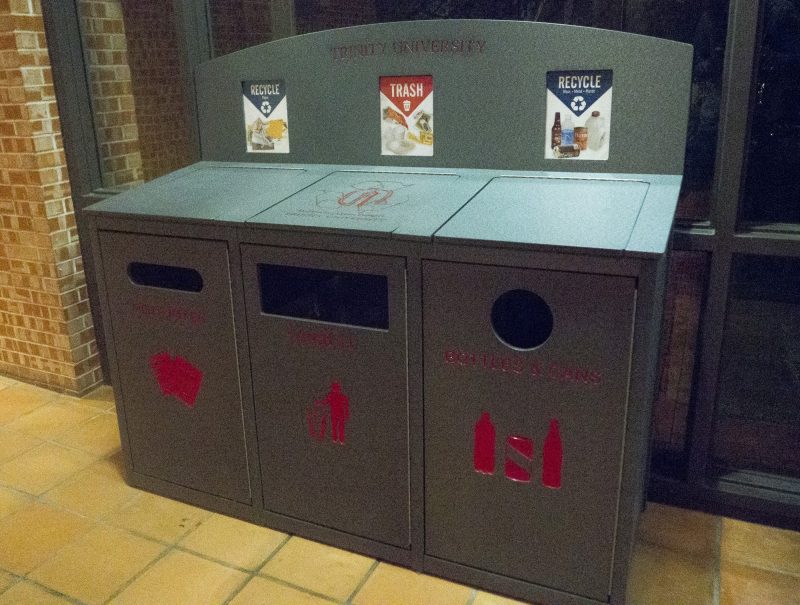The only truly scary thing this Halloween is the fact that we’re facing a climate crisis that’s going to destroy the world in our lifetime. Instead of being spooked, we can try to make a difference as opposed to sitting back and letting it happen.
Recycling is often praised as one of the best ways to help the environment. In the third series of GreenGoolia, I’d like to challenge that belief and tell you why I think recycling is flawed.
I recently sat down with my good friend and colleague from Outdoor Recreation, Maddy Walshak. Maddy is a junior Environmental Studies and Economics major, who like myself, is passionate about helping out Mother Earth. Last year, Maddy did extensive research on the impact that recycling has on the planet. She found some surprising information that led her to change her beliefs on recycling and waste production.
“The main problem that I have with [recycling] is the psychological barriers that it puts in people’s brains. Well-informed people grow up being taught not to question the actual inner workings that go on behind it. It perpetuates this big ‘throw-away’ culture,” Maddy told me.
That made sense to me. If we’re tricking ourselves into thinking that recycling is all we need to do in order to help the planet, we’re seriously misguided. But recycling is good, right? Isn’t it better than throwing stuff away?
“It’s not as efficient as we would like to think,” Maddy said.
In the past, the US has shipped over a third of their recycled products to China, which ends up being about 20 million tons, according to the Environmental Protection Agency. In January 2018, China declared that they will stop accepting foreign imports of plastic and paper that are more than 0.5 percent “impure,” or contaminated with food or otherwise non-recyclable material. This means that tons and tons of plastic we’ve previously been shipping abroad are now going straight to a landfill, or worse, into the ocean. So while you may think you’re helping out the earth by plastic water bottle, you might be doing more harm than good.
Even further than that, the process of recycling is flawed. Growing research points to the fact that the energy, resources and labor required to recycle materials like plastic and paper are almost double the amount it takes to let them break down in a landfill. Maddy cites chemists like Megan Robertson and Jeannette Garcia, who have studied how recycling plastics results in low-quality materials.
“When you [recycle plastic], you’re not actually recycling a product, you’re ‘downcycling’ it, because you’re creating something with worse resources and chemicals and creating something flimsier and weaker. You’re adding pollutants to the environment in the process of creating it and it takes longer to decompose in the long run.”
Maddy told me that one way you can tell whether or not something is recyclable is by how sturdy it is. The sturdier it is, the better it is to recycle. Think glass and aluminum. Glass is the more environmentally friendly option because it doesn’t require as much energy to recycle as plastic and it doesn’t contain any chemical additives, unlike plastic. Aluminum is another material that can be recycled without the quality of the material diminishing, according to many waste management and recycling sites.
Now what can we do as Trinity students, who may not have the time or effort to be recycling experts? The best you can do is be conscious of the choices you make in your day-to-day life. Reusable lunch containers and coffee mugs and water bottles are always better options than throwing things away or recycling them. Recycle glass and metal when you can and avoid plastic when you can.
If you’re really passionate about saving the earth, Maddy recommends getting involved in local politics to try to make legislative change. SA Climate Ready, a local environmental nonprofit, is hosting an Open House this upcoming Monday, Oct. 29 at the John Igo Branch Library, where the public is welcome to share their thoughts on San Antonio’s Climate Action and Adaptation Plan. There are several local nonprofits that are actively involved in upholding the Paris Climate Accord. Remember, eco-lovers, the earth isn’t going to heal itself. We have to decide if we are going to be the generation that saves our planet.






